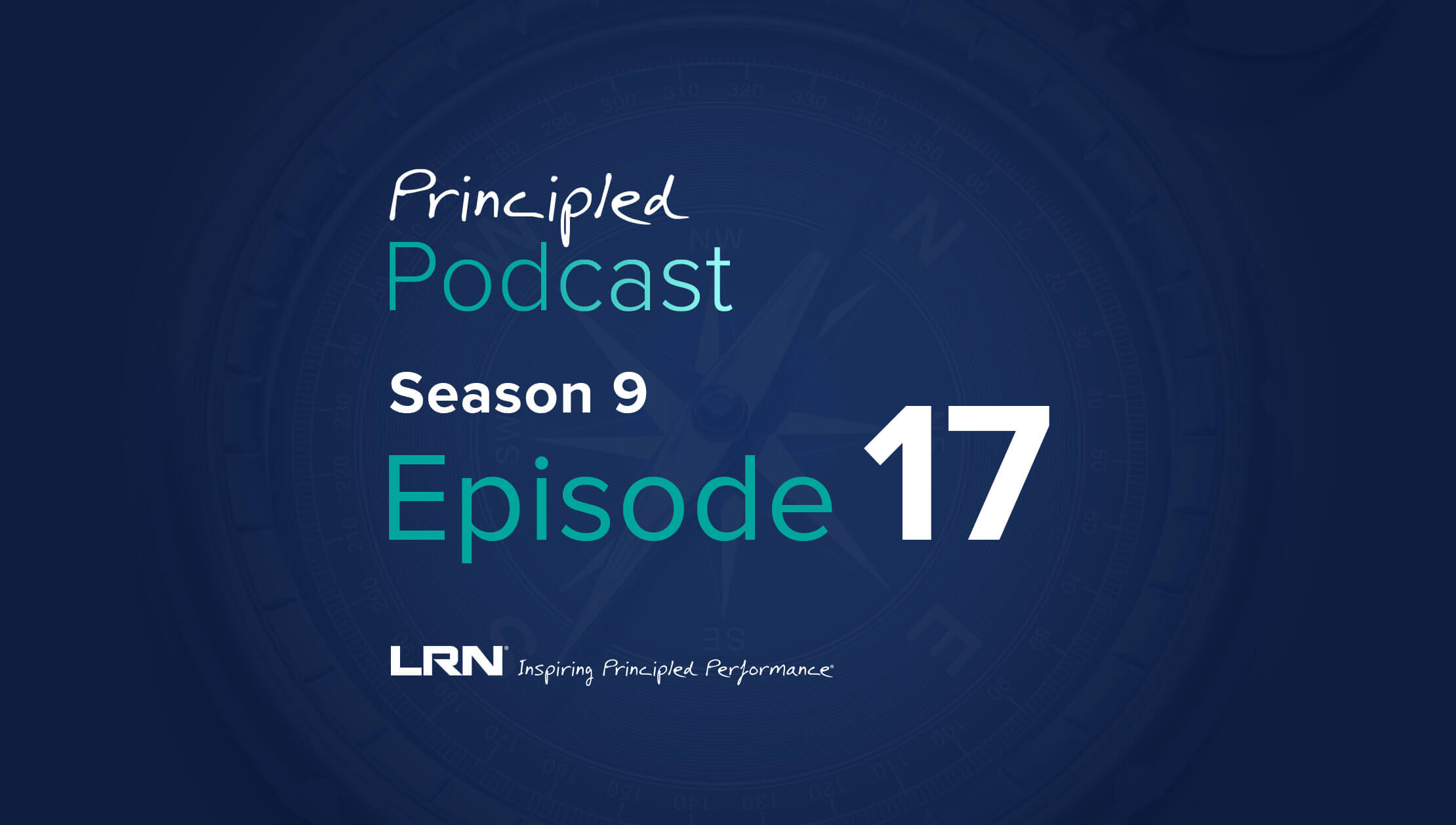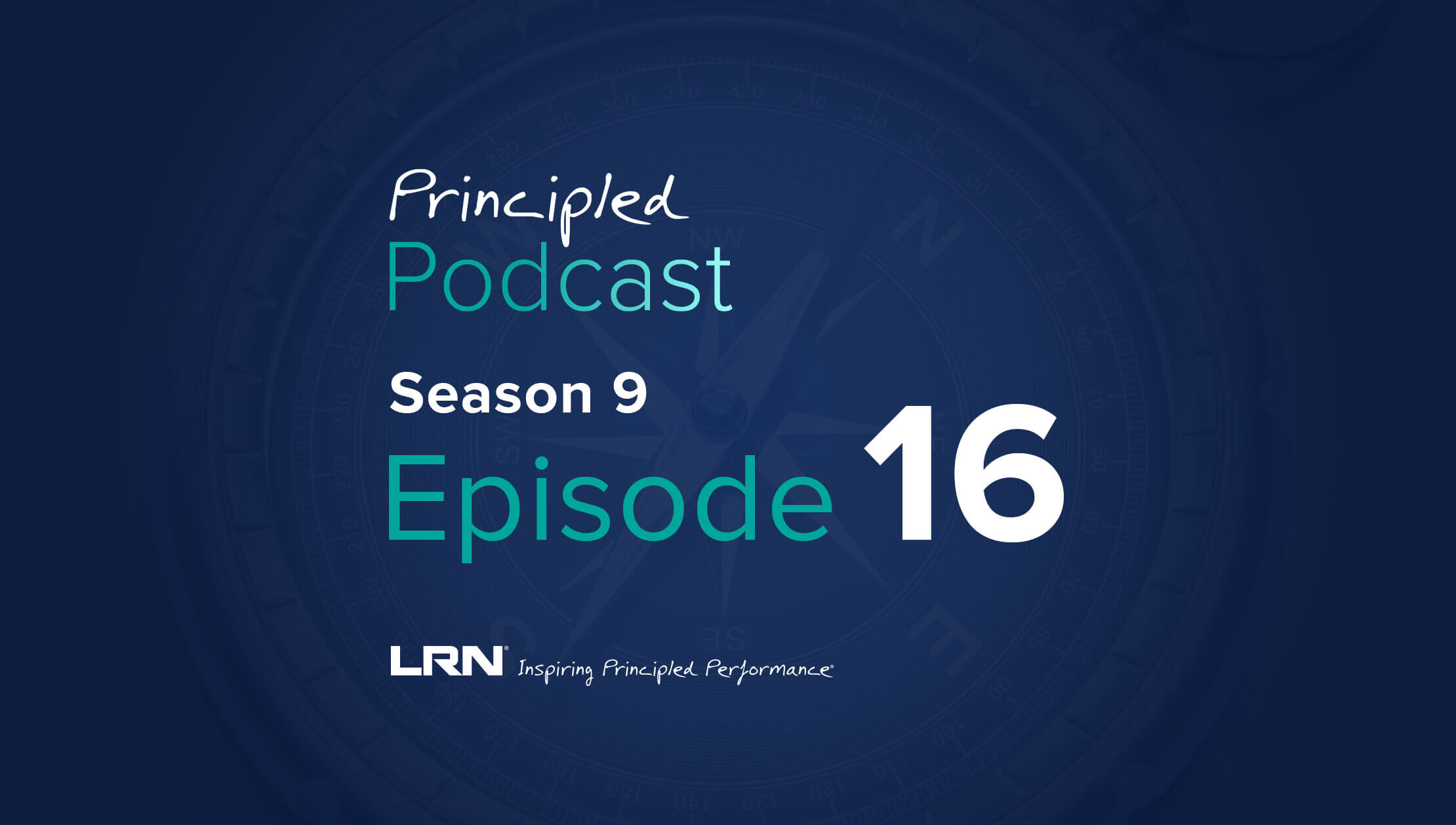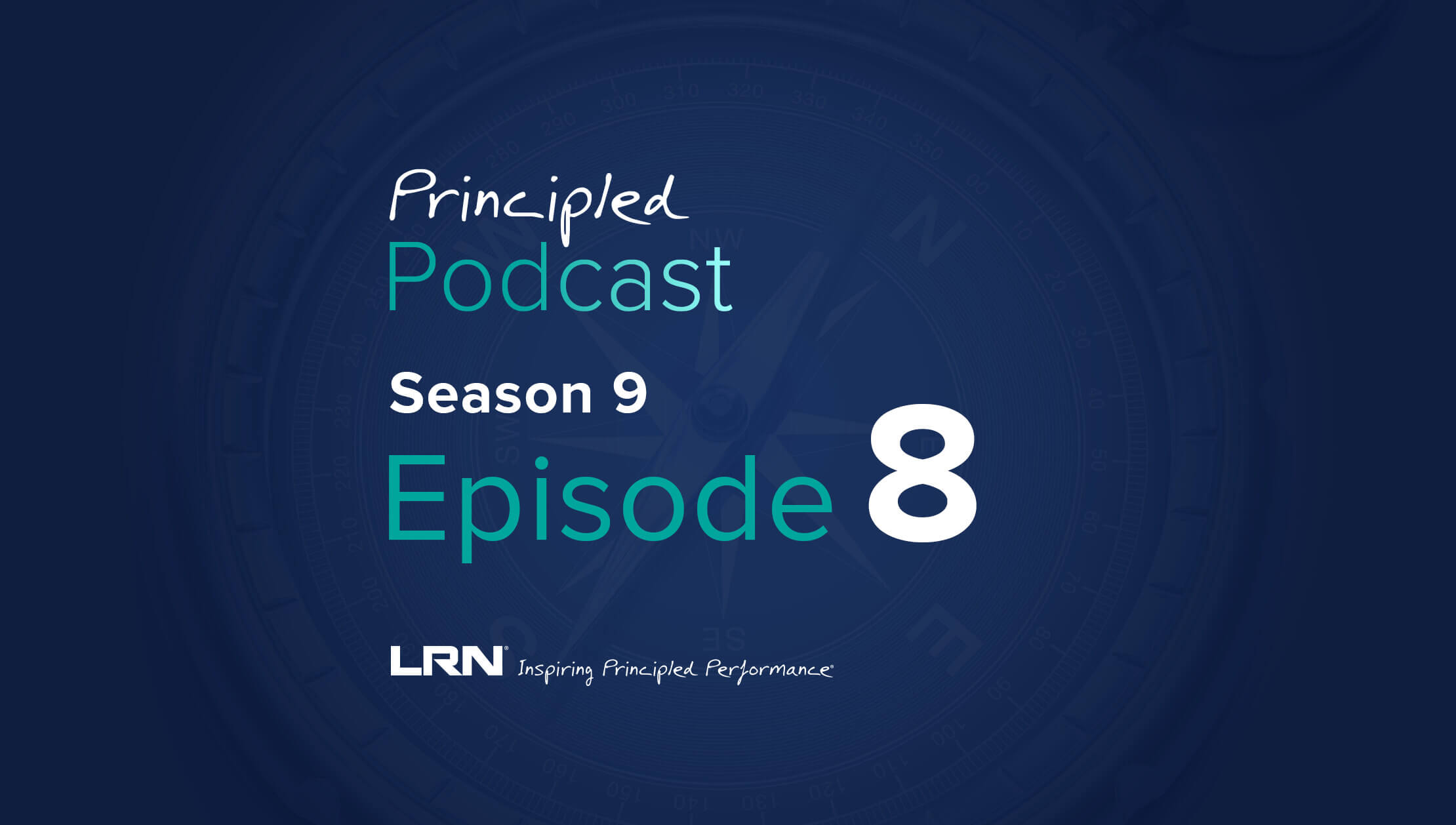The E&C profession is evolving in both exciting and challenging ways. The field is increasingly working to attract a diverse set of skills, qualities, competencies, and aspirations. So, what does it mean to succeed in the E&C profession today? Experts discussed this question at the Ethics & Compliance Initiative (ECI) October Best Practice Forum, where they shared their recommendations and experiences to help E&C professionals accelerate their careers. The panel was hosted by LRN Chief Advisory Officer Ty Francis, MBE and featured a panel of accomplished professionals in the ethics and compliance space including:
- David I. Greenberg, Managing Director, Cortina Partners LLC and Special Advisor, LRN Corporation
- Ellen M. Hunt, Principal Consultant and Advisor, Spark Compliance Consulting
- John Gilmore, Partner, BarkerGilmore LLC
- Haydee Olinger, Senior Advisor at BarkerGilmore LLC and former CECO, McDonald’s Corporation
The panelists talked about the current job market for E&C leaders and professionals as well as the evolving skillsets, certifications, and knowledge that support successful E&C careers. Here are key takeaways from the discussion.
The current state of ethics and compliance jobs
Gilmore and Olinger, both involved in the legal and compliance executive search firm BarkerGilmore LLC, observed that most job openings in the E&C space are cropping up in organizations where the risk tolerance of the chief ethics and compliance officer did not align with risk tolerance of the executive team. This is an important factor to consider when applying for positions. Gilmore noted that during the interview process, a CEO will often be thinking about whether a candidate will impede or enable their business as CECO. Simultaneously, candidates should be thinking about the potential reputational risk of working with an organization; if a company has been receiving negative press for compliance-related reasons, that could impact whether or not a candidate pursues an opportunity.
When it came to interviewing for E&C roles, panelists brought up two important topics:
- Show how data and metrics-driven you are. CEOs and other executive leaders will want to know you plan to measure the success of the E&C team, individual performance, and program performance. Providing past examples as well as a few ideas of how you’d go about this at their organization can help demonstrate your competency in this area.
- Do your homework on company talent. Take a look at the leadership team of each company you’re interviewing with and find out their credentials, talents, and tenure at the organization. Having a sense of the kinds of people a company attracts and how long they stick around can help you decide whether or not it’s the right fit for your career objectives.
4 soft skills that matter to E&C professionals just as much as a resume
Panelists were quick to affirm that succeeding in the E&C profession requires more than just a stand-out resume of qualifications. What many argued was just as—if not more—important to their careers was developing a set of key “soft skills” that focus on connections, breadth, context, and decision-making. Here are four skills they shared that helped elevate them in their E&C roles at various organizations.
- Influencing without formal authority. It’s important to understand where you sit among fellow leaders in your organization and how you can work with them as collaboratively as possible. Listen to their perspectives on the business and ask contextual questions to gain better insight into the kinds of decisions you can help them make.
- Building relationships inside and outside your company. Learning not only about your industry but also the people in it will increase your knowledge and help you gain more confidence in speaking candidly about E&C-related issues. Establishing these relationships can also benefit you when you’re looking for organizational support on proposed E&C initiatives.
- Getting into the minds of the C-suite and board. Making an effort to meet with senior leaders and the company’s governing body—especially outside of obligatory meetings—presents an opportunity to build stronger relationships and get a front-row seat at how key decision-makers view the state of your business. It also puts you more into the mindset of business strategy, which can help you better integrate your E&C objectives into overall organizational needs.
- Understanding company culture and what influences it. Panelists agreed that at the end of the day, company culture matters more than everything else. Part of the long-time challenge for E&C professionals is showing fellow leaders how E&C is a part of the business and culture—not just a program attached to it. The more you actively learn about your company’s culture and the factors that shape it, the better you can craft an E&C program that addresses organizational needs.
6 areas of expertise that are in high demand for E&C professionals
At one point during the discussion, Greenberg and Hunt noted that the E&C profession is already experiencing a shift away from requiring J.D.s and more traditional legal qualifications for roles. The legal component to ethics and compliance, they agreed, isn’t important by itself anymore. Six other areas of expertise rose to the top of conversation:
- ESG
- Finance
- Auditing
- Cybersecurity
- Data analysis and reporting
- Behavioral science
In general, panelists emphasized the importance of continually investing in oneself to build up a diverse set of skills, experiences, and knowledge—and not being stagnant in one’s role. Pursing certifications and other professional development opportunities help demonstrate individual creativity, risk-taking, and curiosity. Panelists also mentioned that having the ability to translate business strategy into E&C strategy and understand how behavior plays out in an organization when there are conflicting priorities were two highly important skills.
Additional resources for ethics and compliance jobs
In addition to these professional development areas, the panelists shared resources with further information on navigating a career in ethics and compliance:



